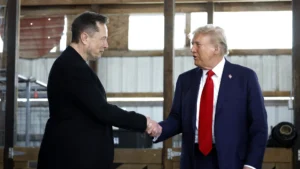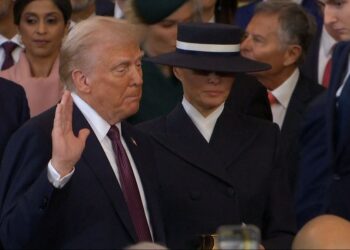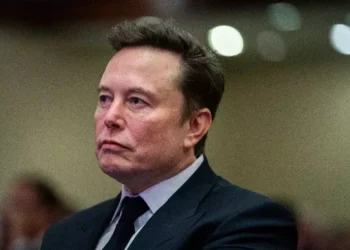The re-election of Donald Trump as the President of the United States signals potential shifts in the tech industry. His decision to appoint Elon Musk as an advisor has sparked curiosity about the future of Big Tech and emerging technologies under his leadership.
Big Tech’s Influence on Daily Life
Tech giants such as Apple, Microsoft, Google, OpenAI, Facebook, TikTok, Instagram, X (formerly Twitter), Samsung, and Nvidia have become essential to modern life. These companies, often referred to as Big Tech, dominate the digital space, offering conveniences while wielding immense power over global markets and daily routines.
Trump and Elon Musk: A Strategic Partnership
During his campaign, Donald Trump announced plans to make Elon Musk an advisor and cabinet member. While legal hurdles may prevent Musk from holding an official position, his influence on Trump’s tech policies is expected to be significant. However, rumors suggest that Trump may sideline Musk after gaining his expertise, as he reportedly does not tolerate “two leaders on the same stage.”
Policies Targeting Big Tech
Trump’s previous term saw efforts to curb the monopolistic tendencies of Big Tech through regulations and sanctions. His administration is likely to intensify scrutiny of liberal-leaning companies like Google and Meta, possibly increasing pressure on them. Meanwhile, figures like Elon Musk and Jeff Bezos are expected to benefit from closer ties with the Trump administration.
Both conservatives and liberals agree on the need to break up the monopolistic grip of Big Tech, making this a rare bipartisan issue. Speculation also suggests that Trump may confront the European Union, which has imposed billions in fines on U.S. tech companies, to assert American dominance in the sector.
Focus on Cryptocurrency and Innovation
Trump has taken a starkly different stance on cryptocurrency compared to the Biden administration. He advocates for the freedom of U.S. citizens to trade digital currencies without government oversight and opposes the creation of a centralized digital currency.
Additionally, Trump’s administration plans to loosen restrictions on self-driving vehicles and artificial intelligence technologies. This regulatory flexibility has already had an impact; Tesla shares rose by 5% following reports of potential changes in autonomous vehicle regulations.
Potential Risks of Deregulation
While Trump’s pro-innovation stance may accelerate technological advancements, it also raises concerns about safety and oversight. Critics warn that unchecked development in AI and other technologies could lead to serious security risks.
Conclusion
Donald Trump’s presidency is poised to leave a significant mark on the tech industry. With Elon Musk as an advisor, the administration’s approach to Big Tech, cryptocurrency, and emerging technologies is expected to be both bold and controversial. Whether these changes will foster innovation or create new challenges for global tech companies remains to be seen.




































